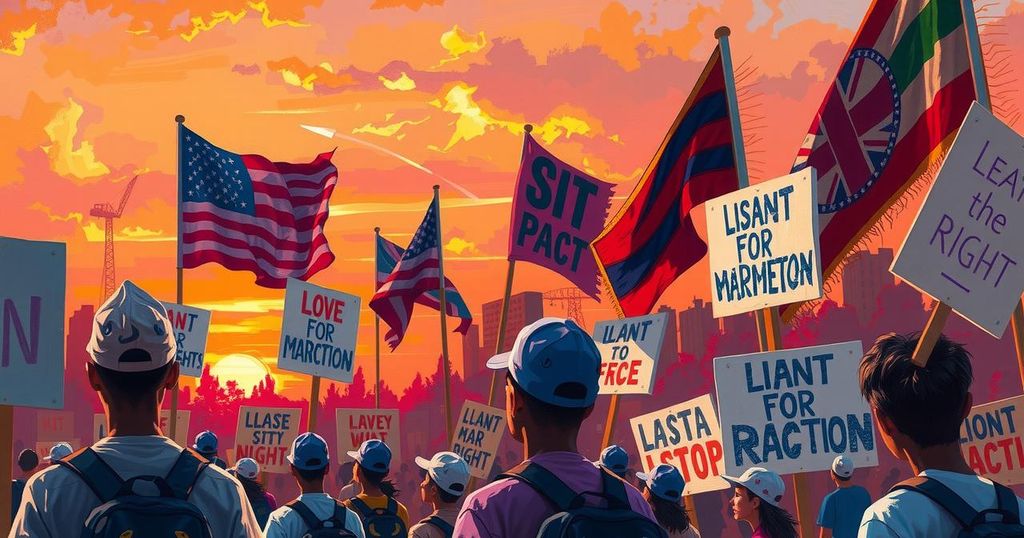Intensifying Protests in Iran Reflect Growing Discontent Across Society
Protests in Iran are escalating as various groups including farmers, workers, and families of political prisoners demand justice and reveal grievances against government mismanagement. Notable demonstrations occurred in Isfahan for water rights, Lavan for fair wages, and Tehran against executions. The unrest reflects widespread frustration with the regime’s handling of economic and social issues, indicating ongoing civil resistance.
Protests across Iran are rising as various societal groups voice their demands for justice and basic rights. Farmers in Isfahan, oil workers in Lavan, and families of political prisoners in Tehran all participate in demonstrations against government mismanagement and repression. These movements reflect widespread discontent with the regime’s policies and handling of national resources.
On March 28, Isfahan’s farmers gathered, advocating for their water rights and the reopening of the Zayandeh River. Their livelihood has suffered due to severe water shortages caused by government mismanagement and diversion projects that favor military interests. The authorities have recently allowed some water releases, yet skepticism about their commitment remains prevalent among the farmers, who argue, “We only want water, yet they steal it and tell us not to protest. How can we stay silent?”
Simultaneously, on March 26, workers from the Iranian Offshore Oil Company in Lavan protested for fair wages and improved job conditions. Workers at Haft-Tappeh Sugarcane Company in Shush echoed similar sentiments, drawing attention to job insecurity amid dissatisfaction within the labor force. The government’s neglect of these concerns has led to fears of increased economic instability and inflation, reinforcing the critical role of labor protests in Iran’s socio-political landscape.
The families of political prisoners in Tehran also continued their demonstrations on March 25, participating in the “No to Executions Tuesdays” campaign, demanding justice for loved ones facing death sentences. Among those highlighted are Vahid Bani-Amerian and Pouya Ghobadi, whose cases have garnered considerable public outrage as the regime’s judiciary continues to impose severe punishments.
Amid the protests, an armed incident occurred on March 27 in Iranshahr, resulting in the death of a police officer and injuries to others. Local reports indicate rising tensions in the region, characterized by conflicts between security forces and local resistance groups, despite state media’s downplaying of the event.
As protests evolve across various sectors of society, the Iranian regime is increasingly confronted with resistance from farmers, workers, and families advocating for justice. This growing civil unrest, fueled by systemic corruption and government oppression, is expected to persist, highlighting the society’s determination for change.
In conclusion, the ongoing protests in Iran illustrate a profound societal discontent regarding government mismanagement, economic challenges, and human rights abuses. Farmers, workers, and families of political prisoners are at the forefront, demanding justice and accountability from the regime. This collective resistance is symbolic of a broader call for systemic reform, indicating that unrest in Iran is likely to continue as these groups unify against oppression and fight for their fundamental rights.
Original Source: www.ncr-iran.org




Post Comment